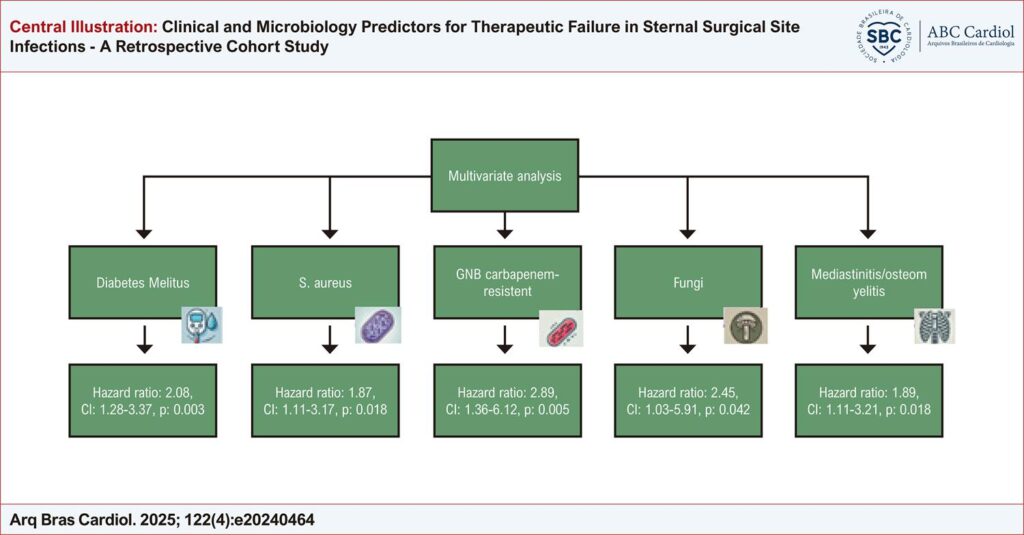Arq. Bras. Cardiol. 2025; 122(4): e20240464
Clinical and Microbiology Predictors for Therapeutic Failure in Sternal Surgical Site Infections – A Retrospective Cohort Study
Introduction
Surgical site infection (SSI) is a major postoperative complication, representing the third cause of health care-associated infection. Even though more than 50% of wound infections are preventable, they represent the main cause of prolonged hospital stay, leading to a hospitalization period more than twice longer, and one of the main causes of hospital readmission.– Therefore, SSI constitutes a financial burden and negatively impacts quality-of-life and healthcare systems, increasing costs by up to 240%.–
Among SSIs, sternal wound infection is an event of special concern due to its potential rapid progression for mediastinitis. Although its low incidence, ranging from 0.5-5%,– a postsurgical mediastinitis has an associated mortality rate as high as 15-47%, in contrast to 2-4% overall mortality due to other postoperative cardiologic complications.– Moreover, the treatment of postsurgical mediastinitis is complex and generally includes debridement, earlier and adequate intravenous antibiotics and flap closure of mediastinum.–
[…]
237

